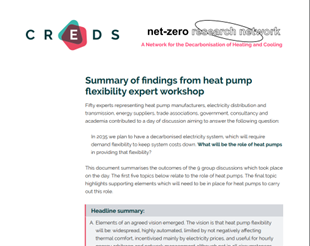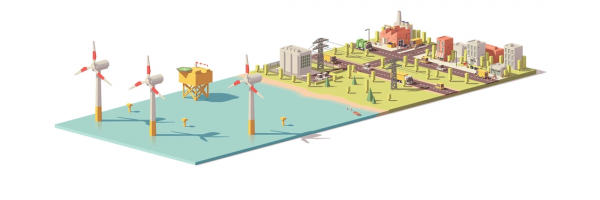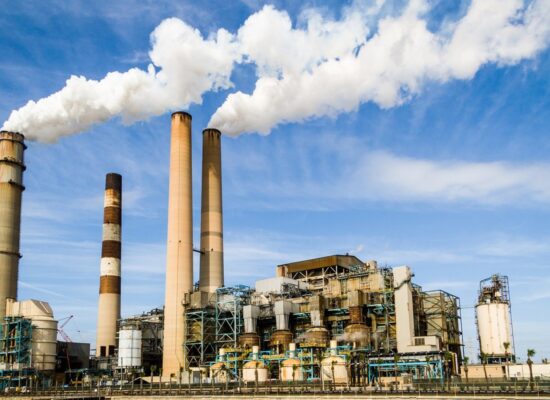
A report of the findings from the Heat Governance Workshop, held at County Hall, Durham in November 2023. The Workshop was organised jointly by CREDS, Nottingham Trent University and Network H+C to explore the issues of governance in our goal of net zero heating and cooling.
The report can be found here: Report

A new report of the findings of the Heat Pump Flexibility Workshop held in June 2023 has been published. The Workshop was organised jointly by CREDS and Network H+C to explore the role of heat pumps in providing flexibility within a decarbonised electricity system.
The report can be found here: Report

Thermal Energy Storage could save the EU over 500Mt CO2 per year
The White Paper “Industrial Thermal Energy Storage – Supporting the transition to decarbonise industry” has been produced by the European Energy Research Alliance’s Joint Programme on Energy Efficiency in Industrial Processes (EERA JP EEIP), a research alliance which aims to support energy-intensive industry to meet the European net-zero greenhouse gas targets.
One quarter of total final energy consumption in the European Union is consumed by industry. Within that quarter, over 80% is consumed by heating and cooling processes. The continued, wide-scale use of gas, oil, coal, and other fossil fuels for industrial thermal processes leads to an estimated greenhouse gas (GHG) emission of 513 Mt CO2 equivalent per year, 12% of total GHG emissions
Thermal Energy Storage (TES) utilises the properties of different materials to store and release heat, which can provide a wide range of benefits, such as supporting the efficient use of renewable energy, enabling surplus heat recovery to reduce industrial energy use and decoupling energy supply and demand.
The White Paper, led by experts at Durham University, in collaboration with colleagues in the Netherlands, Norway, Italy, Spain and Austria, investigated the current usage of TES, the challenges and barriers to further uptake and the commercial and environmental opportunities for its use.
Professor Tony Roskilly, Chair of Energy Systems at Durham University and co-Author of the Paper said “Industrial activity is responsible for approximately 25% of energy consumption across the EU and contributes towards 20% of total greenhouse gas emissions, so it’s crucial to decarbonise industrial energy use. Current industrial heating and cooling technologies are mainly reliant on the use of fossil fuels, and there is a need for a significant shift to renewable energy sources, increasing energy efficiency, and alternative methods for heating and cooling. We need to expand our exploitation of solar and geothermal energy and switch fuels to alternatives such as hydrogen and biofuels. Thermal Energy Storage technologies can enable us to achieve this shift”.
A recording of the Launch broadcast can be found here: Launch Webinar
Durham University is collaborating with Teesside University on a ground-breaking project to accelerate decarbonisation and the use of hydrogen through supporting industrial research and development and capacity building in the Tees Valley.
Our contribution to the project is led by Professor Tony Roskilly and the Durham Energy Institute (DEI). Tony leads a hub for multidisciplinary energy research and is at the forefront of the national and international research effort in the production, storage, distribution and utilisation of hydrogen, including leading three Engineering and Physical Sciences Research Council (EPSRC) funded networks on hydrogen fuelled transportation; decarbonisation of heating and cooling; and equality, diversity and inclusion in energy research.
Researchers from both universities will harness their complementary strengths in the ambitious four-year project, Growing Teesside’s Hydrogen Economy and Catalysing a Just Transition to Net Zero (‘Collaborations in Research’). Further details of this exciting project can be found here:

Dr Andrew Smallbone is leading a project that is working with the Church of England to help decarbonise their heating and meet their aim of achieving net zero greenhouse gas emissions for their operations by 2030.
The project is modelling Durham Cathedral and three local churches to assess the impacts of technology and behavioural interventions on the building CO2 emissions. Watch the video to find out more.

Durham University and Crondall Energy have announced a partnership to accelerate the development of Compressed Air Energy Storage (CAES) in the UK continental shelf. This comes after the award of funding from the UK government to investigate feasibility of an offshore CAES system as part of Phase 1 in the Long Duration Energy Storage competition. The department for Business, Energy & Industrial Strategy (BEIS) have allocated £30.5 million to investigate the feasibility of innovative storage technologies and develop first-of-a-kind prototypes. The project lead for Durham Is Dr Andrew Smallbone. More details here

A new Durham University partnership with Amrita Vishwa Vidyapeetham (Amrita University) will support key foundation industries in India and the UK to decarbonise using the latest thermal energy innovations.
The UK-India FI-SusTEM Collaboration, led by Durham University, aims to tackle the challenge of transforming foundation industries by focusing on optimisation, efficiency improvement, and energy cost reduction through the capture, storage and utilisation of waste heat through technological innovations to exploit low-grade heat for power, heat and cooling applications, including:
Network-H2 is organising a Special Issue to be published by the International Journal of Hydrogen Energy and in addition, contributors will have the opportunity to give an oral presentation of their research during online academic conference between 20th and 22nd September 2022.
We are now inviting submission of research paper abstracts within the scope of the above challenge themes and any other relevant topics. Up to 20 papers will be selected for inclusion in the Special Issue and the authors will be asked to complete and submit full research manuscript for peer review.
By submitting a manuscript for consideration, authors agree to (i) prepare a full-length conference manuscript by 8th April 2022 and commit to deliver an oral presentation during the Network-H2 Conference programme between the 20th and 22nd September 2022, if the submission is accepted.
Please confirm or otherwise interest in submitting an abstract now. The 200-word abstract with a provisional manuscript title should be submitted before Friday 25th February via email to [email protected]
Further details about the call can be found here
The first Award from the EPSRC Network+ Heating and Cooling Decarbonisation has been made to Surrey University for a project entitled Heat4All. Researchers from Surrey University will work with partners Woking Borough Council, Thameswey, UKERC, ADE and CESI to explore how to
minimise fuel poverty in the UK whilst simultaneously delivering Netzero targets and develop a future equitable decarbonised distributed (FEDD) heating system. The project is due to produce a report on their findings in April 2022.

Our networks are supported by the Engineering and Physical Sciences Research Council (EPSRC) as part of the UK Research and Innovation (UKRI) Energy Programme.
If you’d like to hear more about our events and activities, please sign-up below and we will reach out when its appropriate to do so.
Copyright 2020 © All rights Reserved. Durham University.